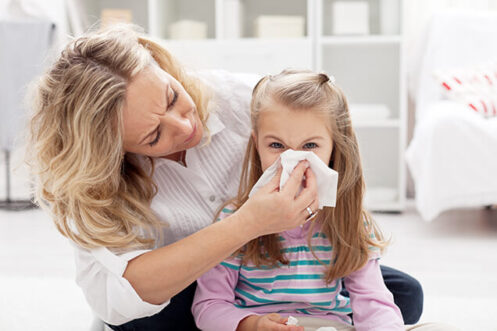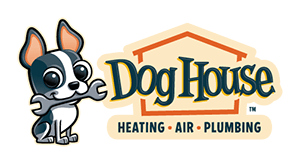
Many people are unaware of how severe a problem indoor air pollution can be, but poor indoor air quality can pose serious health risks to people. Understanding how pollutants affect your health and learning how to improve the indoor air quality (IAQ) in your home or workplace are the first steps to breathing cleaner, fresher air.
1. Particulate Matter (PM)
Particulate matter includes dust, animal dander, pollen, mold spores, and other tiny particles that can become airborne and enter our lungs when we breathe. To reduce PM levels in your home or office, regularly vacuum and dust to reduce the amount of particles in your air. Also, consider investing in an air purifier that can trap airborne particles before they reach your lungs.
You will need professional help to ensure the air purification system works properly. In Freeport, ME, and the surrounding areas, our team at Dog House is your go-to resource.
2. Volatile Organic Compounds (VOCs)
VOCs are a group of chemicals found in various common household items, such as cleaning products, paint, and building materials. While these items might seem harmless, the chemicals they contain can harm our respiratory systems and overall health.
Volatile organic compounds can be difficult to identify and even harder to control. To reduce VOC levels, look for non-toxic cleaning products and opt for natural paints or finishes whenever possible.
3. Carbon Monoxide (CO)
Carbon monoxide is produced by fuel-burning appliances such as furnaces, ovens, and stoves. Machines powered by burning fuels like oil, natural gas, diesel, or propane can also emit carbon monoxide. To reduce the risk of carbon monoxide poisoning, ensure that all fuel-burning appliances undergo maintenance regularly.
4. Radon
Radon is a naturally occurring radioactive gas. It can enter buildings through cracks in foundation walls or floors. It’s the leading cause of lung cancer among non-smokers and can be especially dangerous for those who live in enclosed or poorly ventilated spaces. However, you can reduce the risk of radon exposure by sealing any cracks or openings in your building’s foundation and installing a radon mitigation system.
At Dog House, we provide comprehensive indoor air quality assessments that can help ensure your air quality is up to standard. We also offer a complete range of IAQ and HVAC equipment installation, repair, and maintenance. Contact us at Dog House today to learn more about how we can help.













